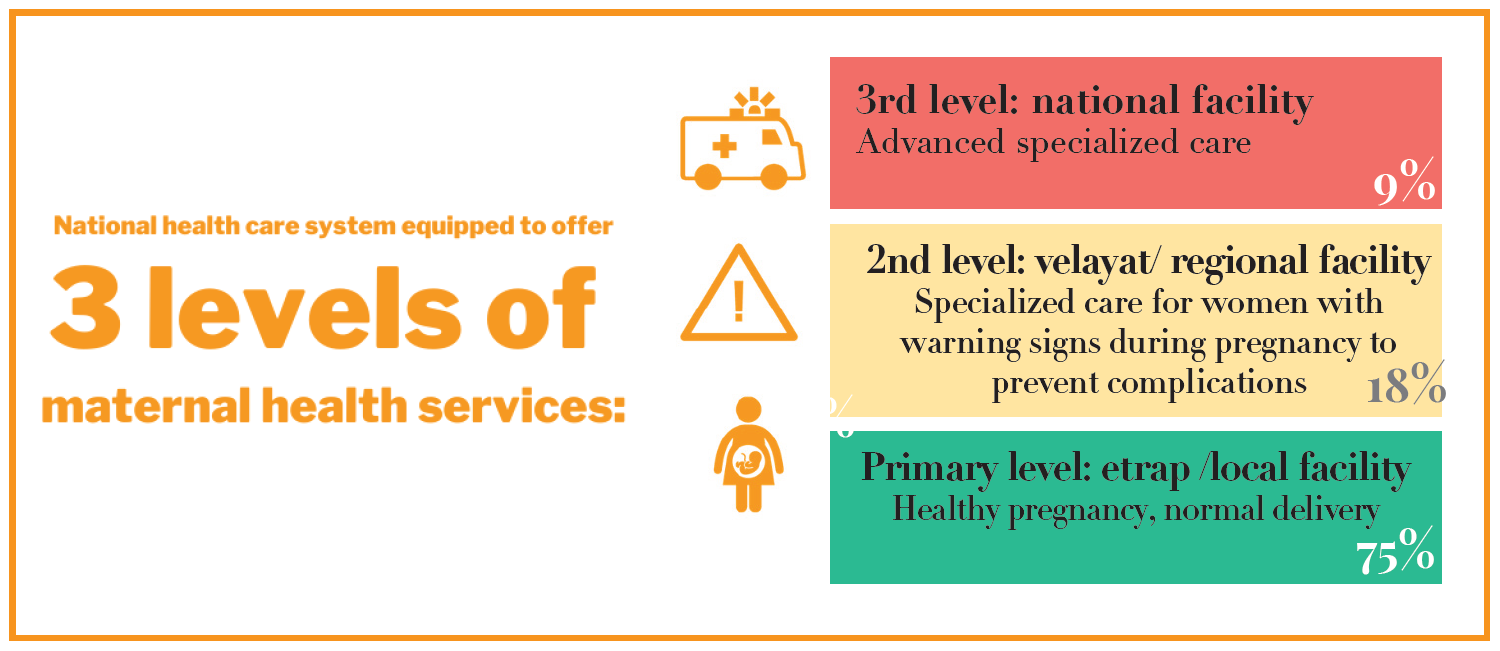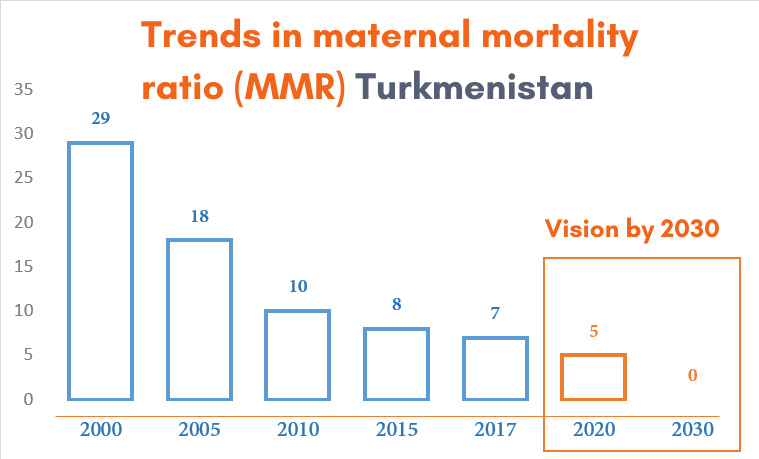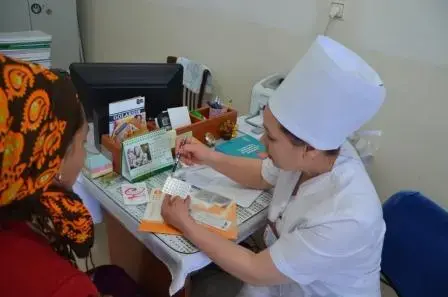Making motherhood safer is a human rights imperative, and it is at the core of UNFPA’s mandate and development priorities.
Making motherhood safer is a human rights imperative, and it is at the core of UNFPA’s mandate and development priorities. UNFPA works around the world with governments, health experts and civil society to train health workers, improve the availability of essential medicines and reproductive health services, strengthen health systems, and promote international maternal health standards. The best way to continue reducing MMR is to (a) make sure women with complications have timely access to quality emergency obstetric care; (b) provide all pregnant women with skilled and respectful care in a safe environment during delivery; and (c) ensure that all women of fertile age are given the choice to use contraception to avoid unintended pregnancies.
UNFPA has supported the MoHMI in standardizing the medical practice of maternal health services based on international evidence, research findings in the country, and WHO/UNFPA recommendations. Forty-four clinical protocols in the area of obstetrics were introduced to every maternity followed by monitoring of their implementation. All obstetricians employed in maternities were trained by regional health department specialists on providing maternal care in line with the introduced protocols. The training was covered by the state budget funds.
Starting from 2015, UNFPA has supported the MoHMI in setting the three levels of maternal health care with a defined set of human resources, equipment, and services. Such a system increases the effectiveness and efficiency of maternal health services and along with standardized clinical practice has contributed to a significant MMR drop in comparison to the 2007 figures.


UNFPA Turkmenistan has committed to support the MoHMI on these interventions within its fifth Country Programme cycle for the period of 2021-2025. The outlined interventions are also included in the abovementioned National strategy on Reproductive, Maternal, Newborn, Children and Adolescent Health for 2021-2030 with its action plan for 2021-2030, which is planned to be costed in 2021.
The Family Planning Investment Case conducted in 2020 serves as the basis for the cost-benefit analysis of investments made in FP contributing to improved maternal health outcomes. In 2021 UNFPA supports the MoH in finding most tailored solutions in the area of health financing of maternal health services with focus on socially vulnerable women. Findings of that research contribute to making informed decisions on health financing modalities in the area of maternal health and advance the national agenda on financing for development. With regards to anemia decrease interventions, UNFPA partners with UNICEF on strengthening laboratory testing and treatment. This synergizes the effectiveness of UNFPA interventions and contributes to decreasing vulnerabilities among women in need.
UNFPA continues its advisory and technical support in strengthening institutional capacity of health care system in preventing the spread of infectious diseases with a focus on global SARS2 pandemic.
Within the framework of the Co-Financing Agreement with the Government of Turkmenistan, UNFPA will partner to improve the midwifery education and midwifery workforce regulations, as well as the infrastructure of maternities, including modern medical equipment and contraceptives supplies.
Read the Policy Brief "Rights and Choices for All: Maternal Health." The Policy Brief provides an issue overview for maternal health and ending preventable maternal deaths globally and in Turkmenistan, explores trends in Turkmenistan, UNFPA's support, and new priorities and opportunities for partnership during 2021-2025.




